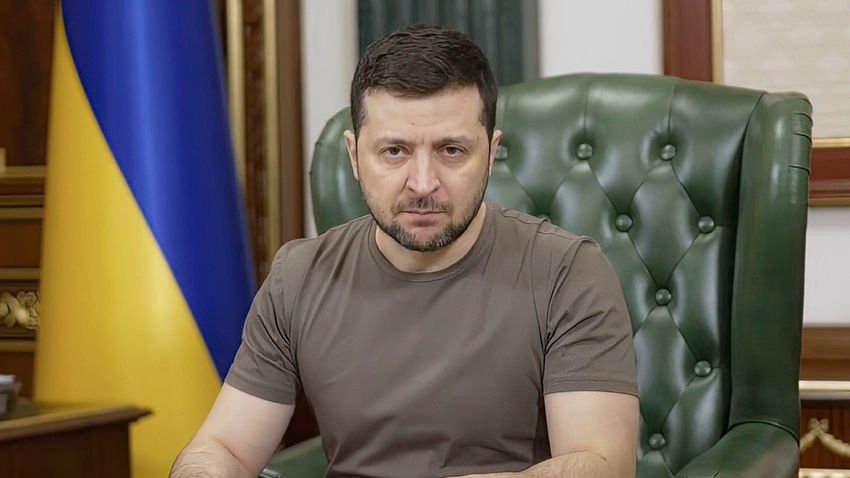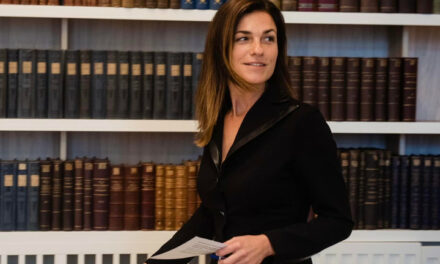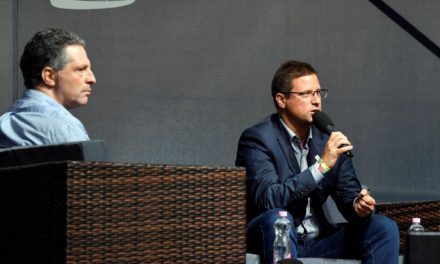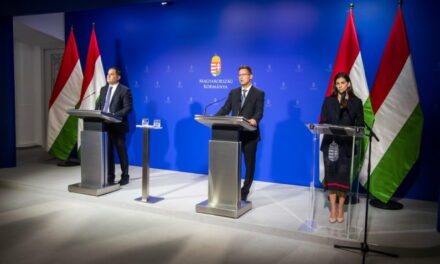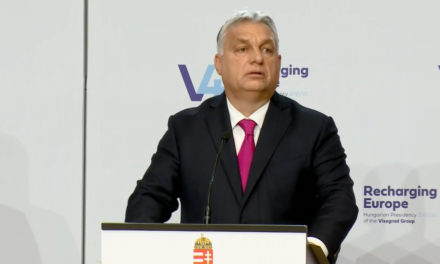Sympathy for Ukrainian President Zelenskiy begins to decline proportionally with the increase in economic difficulties.
While, according to security policy experts, the war in Ukraine weakens Europe and Russia, the position of the United States and China is strengthened. If this is true, then we can't be too surprised that sympathy for Ukrainian President Zelenskiy among European leaders is starting to wane in proportion to the increase in economic difficulties.
We cannot be surprised that American statements are much closer to Ukrainian rhetoric than, for example, Western European ones. The United States is not only separated from the fighting by an ocean, but in some respects it can even gain an advantage from the war, for example by strengthening NATO's eastern flank, or by being able to push in American LNG, which is significantly more expensive than Russian gas.
Yesterday, however, some politics took place between German Chancellor Olaf Scholz and the Ukrainian leadership. The Ukrainians declared German President Frank-Walter Steinmeier an undesirable person.
Steinmeier had previously offered that he, along with the Polish and Baltic heads of state, would visit Kyiv on Wednesday to meet Volodymyr Zelensky, but this did not happen because Kyiv indicated that they would not be happy to see the German president. The reason: Steinmeier maintained a close relationship with Russian Foreign Minister Sergey Lavrov while still foreign minister.
It is obvious that on the part of the Ukrainians, who are clamoring for weapons from all Western countries, it is not very appropriate to make Germany angry with them - on the one hand, they are not in the same weight group, Zelensky cannot afford anything either, and on the other hand, German politics greatly influences European politics.
German Chancellor Olaf Scholz responded to this in an interview with rbb24 Inforádio that the case was "simply irritating", then signally stated that he himself is not planning a visit to Ukraine. In this connection, it is worth mentioning that the Ukrainian ambassador to Germany used to speak in a very arrogant and free-spirited tone about the German government's "too slow" arms deliveries.
Austria also opposes the energy embargo
But this is not where the rhetorical scope of the Ukrainians narrows. Austrian Chancellor Karl Neammer visited Moscow on Monday, and on Wednesday he emphasized to CNN that
not only Austria, but also Germany and Hungary oppose the embargo on Russian energy carriers.
It is worth highlighting here that the mainstream media prefers to state that the introduction of the anti-Russian embargo depends only on a few EU member states that abuse their veto rights. In fact, it would be much more realistic to assume that the other countries would rather make loud statements because they know that they do not have to fear this scenario. Moreover, no European country disputes that it is impossible to give up Russian gas and oil overnight.
The bottom line is the same: there is little chance that the EU is willing to shoot itself in the foot (again) with sanctions on the energy industry in the near future.
The Netherlands does not want accelerated EU membership of Ukraine
In the meantime, unfavorable news for Kiev also arrived from the Dutch. The Dutch government does not want Ukraine to join the EU under an accelerated procedure. This was announced just after the European Commission indicated that the first stage of the accession process could be completed this summer.
Last week, Ursula von der Leyen, the president of the European Commission, handed over the questionnaire for the first stage of the procedure to Ukrainian President Zelenskyi and promised that the processing would only take a few weeks.
However, according to Mark Rutte and his government, von der Leyen's offers are only "nice symbolic gestures" and they oppose accelerated accession, among other reasons, because they would create a dangerous precedent by bypassing the uniform conditions. According to the so-called Copenhagen criteria, candidate members must have stable democratic institutions, a functioning market and the ability to implement EU law.
Corruption in Ukraine was similar to that of Africa in peacetime, war is currently raging in several areas of the country, and its territorial integrity is, to put it mildly, uncertain. The only difference between the Dutch governing parties and the opposition on this issue is the emphasis, according to the opposition, von der Leyen directly overstepped his authority when he made promises to Ukraine and "raised false hope".
Macron and moderation
Another example of the softening European war rhetoric is the statement of French President Emmanuel Macron, who disputed US President Joe Biden's statement that the Russians are committing genocide in Ukraine. According to Macron, such harsh language does not help in this situation.
"I would (rather) say that Russia unilaterally launched a cruel war, and it has now been established that the Russian army has committed war crimes and that those responsible must be found. What is going on now is madness, incredible brutality, but I am looking at the facts and I will continue to do everything in my power to end this war and restore peace, and I don't think that is served by the increasingly harsh language."
he said. In the meantime, it is increasingly certain that Europe will not be able to purchase a sufficient amount of natural gas from non-Russian sources in the spring and summer, and it also appears that some of the Russian gas will be able to reach alternative, Asian markets, while the EU gas storages are empty. In the current situation, it is possible that the war will continue for months, which could represent a nightmare scenario for Europe from an energetic point of view.
Featured image: MTI/AP/Ukraine Presidential Press Office

